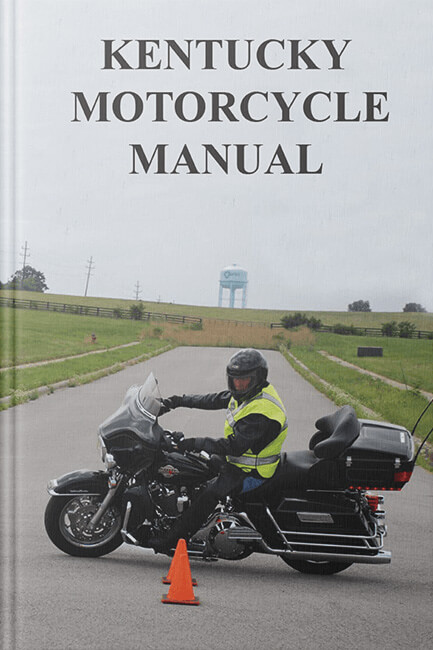Kentucky Motorcycle Manual Driver's Manual
To make studying easier, the Kentucky KSP handbook 2025 edition is available in multiple languages and comes with an audio version. Get interactive support with our AI assistant to clarify any complex terms.
Select your language
Kentucky Motorcycle Manual Online 2025
Unlike most other states, Kentucky does not offer a separate motorcycle operator manual.
Instead, the Kentucky State Police has opted to include safety information on motorcycles, mopeds, trail bikes and all-terrain vehicles (ATVs) in the Kentucky Drivers Manual. This Manual is also available for free PDF download from the State Police website.
Learners are also encouraged to seek out other learning resources from the Motorcycle Safety Foundation, the Marshfield Clinic Research Foundation and the NHTSA (National Highway Traffic Safety Administration). Many of these resources are also available online.
The Permit
In Kentucky, applicants for a motorcycle permit must be at least 18 years of age and have a valid operator’s license. Those who are under 18 years old are required to have their parent or guardian sign their Driver License Application.
Sharing the Road
According to Kentucky traffic law, motorcycles enjoy the same rights and privileges as other vehicles. Traffic laws and regulations that apply to passenger cars apply to motorcycle operators as well. Motorcycles should have a full lane width, in order to maneuver safely. Unfortunately, they are often hidden in a vehicle’s blind spot, or missed because they are small and can be difficult to see. In fact, approximately half of all motorcycle crashes involve another vehicle. For this reason, motorists are reminded to check their mirrors and blind spots, especially before entering or leaving a lane, or at intersections.
While hazardous road conditions affect all motorists, they can be extremely dangerous for motorcycle operators. Even minor issues can pose a major hazard to someone on a motorcycle. This is why it’s especially important to watch a motorcyclist for changes in speed or position, due to hazards including:
- potholes
- gravel
- wet/slippery road surfaces
- pavement seams
- railway crossings
- grooved pavement
Motorcycle Helmet Law
The first motorcycle helmet law in the state of Kentucky was enacted in 1968 and was amended in July 1998. The law requires helmet use by:
- Motorcycle operators and passengers under 21 years old
- Operators with a motorcycle instruction permit
- Operators who have had their licenses for less than a year
The immense safety benefits of using a helmet are proven in the statistics:
- When the universal helmet law was repealed in the state, motorcycle fatalities increased by a shocking 50%
- The NHTSA found that helmets are approximately 37% effective at preventing fatal injuries
- According to the NHTSA, the lives of over 1600 motorcyclists were saved by helmets in 2006 alone
We encourage you to check out some of the available motorcycle safety information in the Kentucky Motorcycle Manual below. Good luck on the exam and stay safe on the road!
